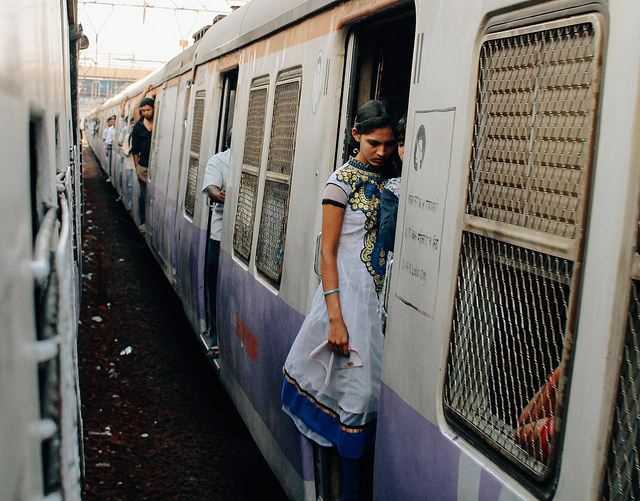
If you live in Mumbai you know that the train is the fastest, cheapest, and most convenient way to get around. But even with the thought of wasting hours in traffic and burning up precious fuel, I prefer to drive my car instead of taking the train.
It was not until I started working on the issue of sexual violence prevention a few years ago that I realised the connection between my experience of being groped on a train as a 13-year-old and my intense dislike of travelling by train in Mumbai or anywhere in India. My mind had previously blocked the connection. It was only when I first shared my story about the groping incident that a friend said that she now understood why I preferred to travel by car.
I am not alone in my experiences of sexual violence or in my selective memory of how it affected me.
Every time I share my stories about sexual abuse, other people open up about their stories and tell me details that point out how their behaviour and attitudes have been impacted by their experiences of abuse. At the end of a media interview I did with a local journalist in Argentina, for instance, she shared her own story about being stalked on her way to the library when she was a teenager. She was so disturbed and frightened that she chose to not use the library even though it was her only source for books, as her family did not have the resources to purchase or rent them. It took years before she felt able to return to that location. Only in talking to me did she realise how a man stalking her had caused her to modify her behaviour for such a long period of time.
Sexual violence is a global pandemic affecting an average of one in three women around the world. Most of these incidents are committed not by strangers but by people known to their victims and can have emotional, mental, and physical effects on the victim or witnesses to the incident. However, due to the silence around this issue, it is difficult to talk about it. Many feel a reluctance to seek help or report officially, and in many cases, survivors of abuse may brush off the incident as ‘normal’ or ‘trivial’ and try to bury it in their subconscious.
But even when we try to forget they occurred, these incidents do affect us. Sometimes we can make the connection, but many times we might not. At one of the Safecity workshops, for example, after hearing my story and a few other stories, a young woman gathered her courage to share her own experience of being molested by her religious teacher at the age of nine. Since then, she has disliked being around men, including her male relatives, and exits any situation that requires her being alone with them. However, once she acknowledged this incident and made the connection between her fear of being alone with men and her experience of abuse, she made an attempt to overcome her fear and rebuild relationships with her male family members and friends.
Even when we do know that there is a direct connection, it can be hard to know how to handle it. For example, a very successful woman who works in the corporate sector reached out to me to share her experience of being molested by her uncle when she was a child. She said that I was the second person only whom she had spoken to about the incident. Even her husband was not aware of it. She went on to tell me that she was reluctant to attend any family events, knowing full well that she would have to meet this uncle. Feeling this way made her angry, but she also felt helpless to do anything about it. She asked me for advice about what she should do. I talked to her about various possibilities ranging from exposing the uncle or demanding an apology to filing a police case or having a family council meeting. We tried to find a solution that would make her comfortable whilst confronting the situation. Ultimately, I think she just wanted a nonjudgmental person to reassure her that she was going to be fine, and that if she wanted, she could confront her uncle.
Incidents of abuse, especially ones that happen during childhood or adolescence, may paralyse the mind, batter any feelings of self-esteem and confidence, and limit the survivor’s ability to live a quality life. In my case, for example, I had modified my behaviour to avoid dealing with the root cause of my experience and instead circumvent it.
At the more extreme end, sometimes parents, under the guise of safety, restrict girls from seeking an education and limit their mobility (and thereby their opportunities). In my work with my organization Safecity, I have come across several girls who have dropped out of school because they experienced groping, stalking and constant sexual advances and didn’t know how to deal with them. If they told their parents, they would have been blamed for ‘bringing on these incidents upon themselves’ and if they continued going to school they would have feared more violent harassment from the perpetrators.
However, by creating a safe space to discuss these issues and acknowledging these experiences, we can find a way to address the root cause and move forward in our healing process. In my own case, speaking and writing about my experiences, trying to make associations, and confronting my fears has made me more confident about my work and my ability to connect with the people we serve. Memories and experiences can be channelled towards positive outcomes if you acknowledge them and work on your fears. I now take the train everywhere in Mumbai and don’t feel afraid of being groped in crowds anymore.
Cover Image: (CC BY 2.0); Flickr